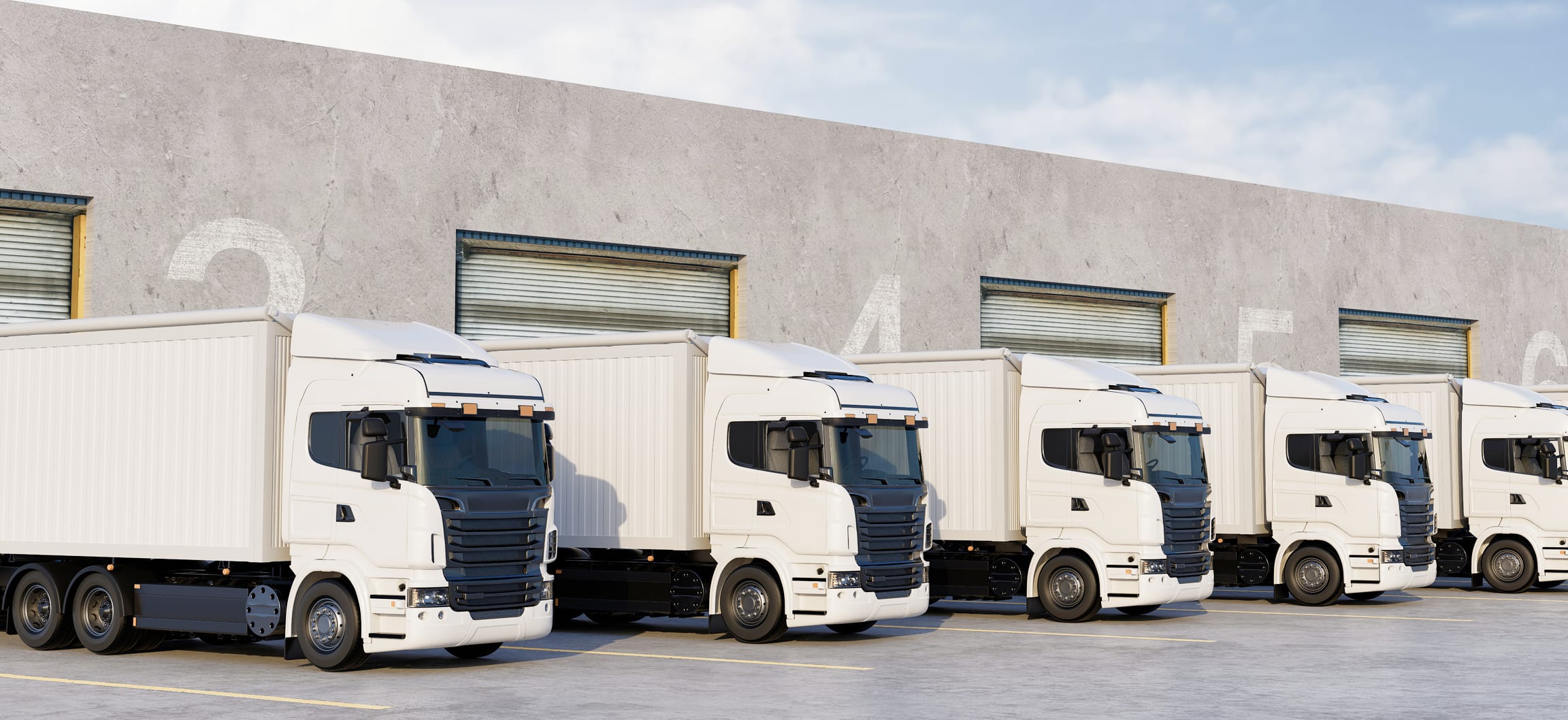
- Industries
Contact sales
Our software caters to all the verticles of equipment rental businesses. Have other plans? Share yours.
 Chat with us
Chat with us - Marketing Strategy
- SEO Guide
- Blog
Contact sales
Our software caters to all the verticles of equipment rental businesses. Have other plans? Share yours.
 Chat with us
Chat with usComplete guide to starting a trailer rental business
Inside the article
Request a product demo
Get a demo and clarify your doubts about our software.
Many people occasionally need trailers but don’t want the expense of owning one.
By offering trailer rentals of various types (utility trailers, travel trailers, semi-trailers, etc) you can appeal to a wide range of communities.
From market research to marketing strategy, let’s see how you can start a trailer rental business.
Without further talking, let’s start the blog.
Start by researching the trailer rental industry
To understand your local demand and competition, start with market research.
Identify who in your area would need to rent trailers and for what purposes.
For example, in agricultural or rural areas, farmers may need utility trailers to haul livestock, whereas in upscale suburban areas, there might be a demand for landscaping businesses hauling yard equipment.
Look for seasonal trends as well.
Competitor research
Study your competition closely.
Find out if there are existing trailer rental services nearby, what types of trailers they offer, and how much they charge.
This competitive analysis can reveal gaps in the market.
You might discover an untapped niche too.
For instance, perhaps no one in your town rents travel trailers, or there’s a shortage of affordable small utility trailers.
Such insights let you differentiate your business.
Legal requirements and licensing
Choose a business structure
Many small rental businesses opt to form a Limited Liability Company (LLC) for liability protection and tax reasons.
In your case, you can consider a sole proprietorship, partnership, or corporation.
That depends on where you are.
Register your business
Register your business name with local authorities and obtain an Employer Identification Number (EIN).
If you don’t have a clue, it’s wise to consult with a business advisor to determine the best structure for your trailer rental business.
Insurance
Insurance is crucial as well.
While trailers themselves typically don’t require auto insurance since they are towed, you can opt for commercial liability insurance to cover accidents or damage.
Consider checking out insurance for equipment rental to know the different facets of insurance.
Rental agreements
Many rental businesses require customers to sign a rental agreement.
If you are not one up for contracts, hire a lawyer to help you draft solid rental contracts that cover liability, damage, late returns, and other policies.
Estimating startup cost and securing funding
Calculate your startup costs, so you know how much money you’ll need when launching your trailer rental business.
The huge upfront expense will be purchasing your trailer fleet.
Regarding the trailer cost; it can vary widely. Let’s say a small used utility trailer might cost around $1,000, while a large new travel trailer could run tens of thousands of dollars.
If you start with a handful of small utility trailers, you can get your trailer off the ground with an investment of around $15,000–$20,000 for the trailers.
Beyond just the trailer purchases, be sure to account for other startup expenses.
If you’re not using your personal property for storage, you may need to lease a small lot or storage yard to park the trailers.
The good news is that compared to other rental businesses, a trailer rental operation can have relatively low ongoing overhead.
Funding
With a rough budget, determine how you will fund your startup.
You can consider your savings, loans, or investments from family and friends, or other sources.
If you have a solid business plan, even a local bank may finance your purchase of trailers or equipment.
Keep in mind that starting small allows you to minimize debt.
You could even begin with one or two trailers, and then reinvest the rental income to expand the fleet over time.
That’s a safe bet.
Purchasing a trailer for your fleet
With funding in place, you can move on to purchase trailers.
The types and number of trailers you buy should align with the niche and target customers you identified in market research.
To help you decide on the trailer types, we have discussed several trailer types below.
Utility trailers
Small open or enclosed trailers for general use, such as moving furniture, hauling landscaping materials, or towing ATVs.
These are popular with homeowners and contractors for short-term projects.
They are relatively inexpensive and a great entry point for a rental business.
Travel trailers
Travel Trailers (Campers) – towable RV trailers that provide living space for camping or road trips.
These appeal to vacationers who want the RV experience without owning one.
They tend to be more expensive and require more maintenance (interior appliances, plumbing, etc.) but can command high rental rates.
Semi-trailers
Semi-Trailers – the large trailers used with semi-trucks (tractor units), such as 48’–53’ dry vans, flatbeds, or refrigerated trailers.
If you own one, you could be serving local trucking companies or independent truck drivers who need extra capacity temporarily.
Semi-trailers are a bigger investment and often a more specialized market, but rental demand can be strong in areas with active industry.
Of course, there are many other trailer types (enclosed cargo trailers, car haulers, dump trailers, horse trailers, etc—that you might consider as you grow.
What to choose? Used or new trailer?
Buying a used trailer can save money upfront and let you start with a range of fleets for the same budget.
Many entrepreneurs start with an older travel trailer or a used flatbed, to reduce costs.
If going the used route, inspect the working condition of each trailer.
On the flip side, new trailers come with the benefit of a warranty and likely need less initial maintenance.
Conclude whether to go for a new or used trailer based on your budget and other factors.
Setting up operation and maintenance
With your trailers acquired, you need to set up smooth operations, for which you need a better approach.
Start by arranging a storage location and workflow for rentals.
Ideally, you have a secure lot or driveway where the trailers can be parked when not rented.
Ensure the area is accessible (easy for customers to tow the trailer in and out) and consider security measures (locks, cameras, tracker) to protect your assets.
Opt for a software
In the beginning, this could be as simple as a notebook or spreadsheet to track rental dates and trailer availability.
Once you have scaled to several trailers, you might need the trailer rental software.
Many modern renters expect the convenience of online reservations, so having a simple website with a booking functionality can do the heavy lifting.
Rental agreement
Create a clear rental agreement for checking trailers out and back in.
Put the scenario of a standard rental transaction in your mind and document the steps.
Ask these questions: What paperwork or digital contract will they sign? Will you take a security deposit or credit card hold?
Outline policies for pickup and return times, and cleaning.
Inspect the trailer in and out
When a customer arrives to pick up your trailer, have a checklist for inspection.
Verify whether the lights are working, the tires are inflated, the hitch is properly secured, and note any pre-existing damage on a form or photos.
For new renters, you can give a quick demo of how to hook up the trailer, how to load properly, etc.
Besides, prepare a maintenance schedule for each trailer, including routine checks of tires, brakes, lights, wheel bearings, and all.
Pricing strategies
Setting the right pricing strategy is key to balancing competitiveness and profitability.
Do you want to charge a higher price for the trailer rentals? In trying that, don’t scare away your customers.
The solution is to research your competitors for similar trailers.
If you’re the only trailer rental around, you have more flexibility, but in most cases, you’ll be competing with other rental businesses.
Next, decide on your rental periods and rates.
Many trailer rental businesses offer daily and weekly rates, and some offer monthly rentals.
After all, your concern should be that your pricing covers all your operational costs.
Don’t be afraid to adjust your prices after you launch.
You might start a bit lower to attract initial customers and get some rentals under your belt, then gradually increase once you have a reputation.
Marketing techniques to attract customers
With your operations set, you need effective marketing to get the word out and bring in customers.
Start by establishing an online presence.
Many people search online first when looking for rentals. The website can be a great tool to start with.
If websites rank when the renter searches for them, that’s a winning moment for you. It has to do with the SEO.
SEO for your trailer rental means the process of optimizing your website for the algorithm to rank on search engines like Google.
You can either develop a website or use software where you’ll get one.
Things to consider if you have a website,
- Include high-quality photos of your trailers, since images can significantly influence customers.
- Optimize your website for local search terms (local SEO) so that people searching for “trailer rental in [Your Town]” can find you easily.
Apart from SEO, register your business on Google My Business (Google Maps listing) so that locals see your contact info and reviews.
Consider using paid advertising like Google Ads targeting keywords (e.g., “utility trailer rental near me”) or Facebook Ads targeted to people in your area who have interests in home improvement, camping, moving, etc.
That’s a quick way to reach your customers.
While doing digital marketing, don’t overlook offline marketing, since you are operating locally.
Traditional methods like business cards and flyers can be effective.
Also, ensure your trailers themselves are rolling billboards. Put your company name, logo, phone number, or website on each trailer.
When people see your trailer on the road, they should be able to note down how to contact you.
This kind of passive marketing is very cost-effective.
End note
Enough of marketing!
Starting a trailer rental business is a long stretch. But it can be incredibly rewarding.
By doing your homework on the market, setting up the legal and financial basics, and investing in the right trailers, you set the stage for success.
Most importantly, take good care of your customers.
Every positive rental experience will lead to more business.
Good luck on your entrepreneurial journey!
Request a product demo
Get a demo and clarify your doubts about our software.





